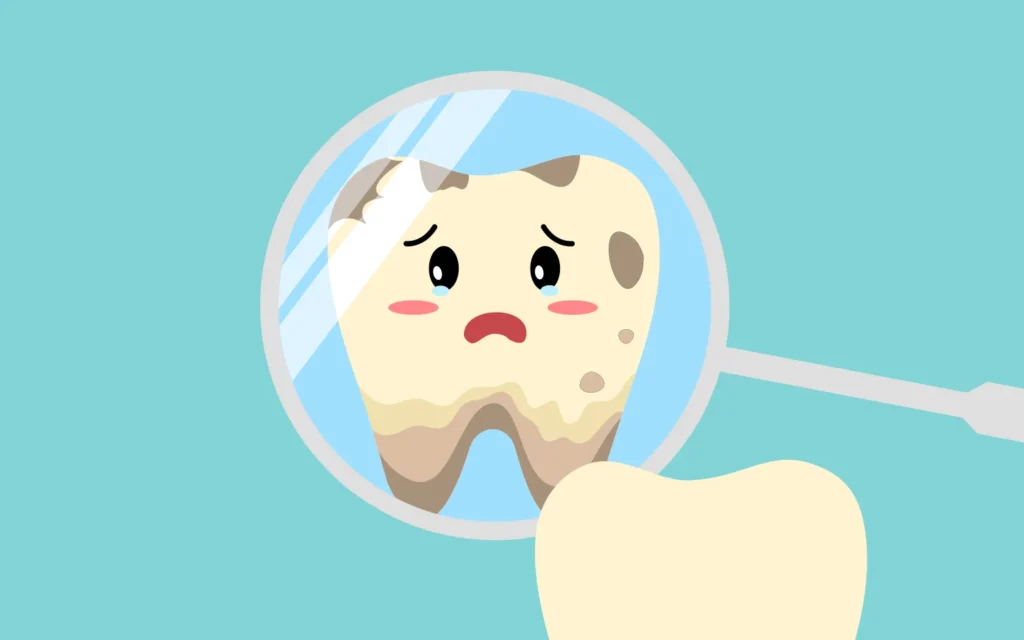Oral Health Tips for Patients with Diabetes
Managing diabetes involves more than just monitoring blood sugar levels—it impacts overall health, including oral health. People with diabetes face a higher risk of various dental issues, from gum disease to dry mouth, due to the impact of fluctuating blood glucose levels on the mouth’s environment. Maintaining a healthy smile is achievable, though, with the right dental habits and proactive care.
At Brighter Smiles Dapto Dental, we understand the unique oral health challenges faced by our patients with diabetes. In this blog, we’ll cover essential tips to help you manage your oral health effectively, prevent complications, and enjoy a confident, healthy smile.

The Link Between Diabetes and Oral Health
High blood sugar levels associated with diabetes affect every part of the body, including the teeth and gums. Here are some common ways diabetes impacts oral health:
- Increased Risk of Gum Disease: High blood glucose levels can encourage the growth of harmful bacteria, increasing your susceptibility to gingivitis and periodontitis, two types of gum disease.
- Dry Mouth: Diabetes can reduce saliva production, causing dry mouth, which raises the risk of tooth decay, gum disease, and oral infections.
- Delayed Healing: People with diabetes often experience slower healing times, which can be challenging after dental treatments or oral injuries.
- Increased Risk of Oral Infections: Diabetic patients may be more susceptible to fungal infections like thrush, as high glucose levels create an environment conducive to bacterial and fungal growth.
Oral Health Tips for Managing Your Smile with Diabetes
To maintain a healthy smile and prevent diabetes-related oral complications, consider following these tips:
1. Prioritize Blood Sugar Control
- Keeping blood sugar levels stable is the foundation of preventing diabetes-related health issues, including oral complications. Fluctuating or high glucose levels can exacerbate oral health issues like gum disease and dry mouth, so following your doctor’s advice to control your diabetes will positively impact your oral health as well.
- Managing blood sugar levels can reduce inflammation, minimize the risk of infection, and support your immune system, making it easier for your mouth to fight off bacteria and heal more effectively.
2. Practice Thorough Oral Hygiene
A regular, thorough oral hygiene routine is critical for people with diabetes. Aim to brush at least twice a day, and ideally after every meal, to remove food particles and plaque that can contribute to gum disease.
- Brush Correctly: Use a soft-bristled toothbrush to gently clean teeth and gums without causing irritation. Brush for at least two minutes, ensuring you reach all surfaces.
- Choose Fluoride Toothpaste: Fluoride strengthens enamel, helping to prevent cavities, which are more likely with diabetes due to dry mouth and higher bacteria levels.
- Replace Your Toothbrush Regularly: Replace your toothbrush every three months, or sooner if the bristles become frayed, as a worn brush is less effective at cleaning.
3. Don’t Skip Flossing
- Flossing daily is just as important as brushing, as it removes plaque and food particles from between the teeth where a toothbrush can’t reach. Gum disease often begins in these hard-to-reach areas, so flossing helps you reduce plaque buildup, maintain healthy gums, and prevent inflammation.
- Using interdental brushes or water flossers can be a helpful alternative if traditional flossing is uncomfortable or challenging. Aim to floss every evening before bed to remove the day’s buildup.
4. Watch for Symptoms of Gum Disease
- Diabetes can increase the risk of gum disease, which can worsen if left untreated. Early symptoms include red, swollen, or bleeding gums, as well as persistent bad breath. If you experience any of these symptoms, schedule an appointment with Brighter Smiles Dapto Dental as soon as possible. Early detection and treatment of gum disease are essential for stopping it from progressing into more serious forms.
- Our team can provide deep cleaning treatments, advice on improving your home oral care routine, and tailored recommendations for managing gum health if you’re at risk of or experiencing gum disease.
5. Combat Dry Mouth
- Dry mouth, also known as xerostomia, is a common complication for people with diabetes due to lower saliva production. Saliva is important for washing away food particles and bacteria that cause decay, so maintaining moisture in the mouth is vital.
6. Here are some ways to alleviate dry mouth
- Stay Hydrated: Drink plenty of water throughout the day to keep your mouth moist.
- Use an Alcohol-Free Mouthwash: Alcohol-based mouthwashes can make dry mouth worse, so opt for an alcohol-free, moisturizing mouthwash instead.
- Humidify Your Environment: Using a humidifier in your room, especially at night, can help maintain moisture in your mouth and nasal passages while you sleep.
7. Schedule Regular Dental Checkups
- Routine dental checkups and professional cleanings are essential for everyone but are especially important for people with diabetes. Regular visits to Brighter Smiles Dapto Dental allow us to monitor your oral health, detect potential problems early, and provide preventive care to keep your teeth and gums in optimal condition.
- During each visit, let your dentist know about your diabetes management, including any medications you’re taking. This allows us to tailor your dental care plan and provide additional advice specific to managing oral health with diabetes.
8. Follow a Diabetes-Friendly Diet
- A balanced, diabetes-friendly diet not only supports overall health but also benefits oral health. Sugary foods and drinks can lead to tooth decay and gum disease, especially if you have diabetes, so focus on a diet rich in fresh fruits, vegetables, lean proteins, and whole grains. Avoid snacks high in sugar, as these can contribute to plaque buildup and increase the risk of cavities.
- Limiting your intake of acidic foods, such as citrus and soft drinks, can also protect your enamel and reduce the risk of decay.
9. Consider Additional Fluoride Treatments
- Diabetes can increase your susceptibility to cavities, making extra fluoride beneficial for protecting your teeth. Ask your dentist at Brighter Smiles Dapto Dental about professional fluoride treatments, which provide additional protection against decay and strengthen tooth enamel. We may also recommend a prescription fluoride toothpaste if needed to support your oral health routine.
10. Be Aware of Potential Fungal Infections
- People with diabetes are more likely to experience fungal infections like oral thrush due to higher glucose levels in the saliva, which can encourage fungal growth. Symptoms of thrush include white patches on the tongue or inside the cheeks, redness, and soreness.
- If you notice these symptoms, speak with your dentist or doctor for treatment options. Maintaining blood sugar control and a clean, moist mouth can help reduce the risk of thrush and other oral infections.

Conclusion:
Living with diabetes doesn’t mean you have to sacrifice a healthy, beautiful smile. By practicing good oral hygiene, staying vigilant for signs of gum disease, and maintaining open communication with your dental team, you can manage your oral health and prevent complications associated with diabetes.
At Brighter Smiles Dapto Dental, we’re committed to supporting our patients with diabetes by providing personalized care, advice, and preventive treatments to help you maintain optimal oral health. Book a consultation with us today, and let’s work together to keep your smile bright and healthy—no matter your health challenges.
By following these tips and staying proactive, patients with diabetes can protect their oral health and reduce the risk of complications, all while supporting overall wellness. Remember, a healthy smile is a bright smile, and with the right care, it’s within reach for everyone.
Dr Kala Raj , Nov 2024


